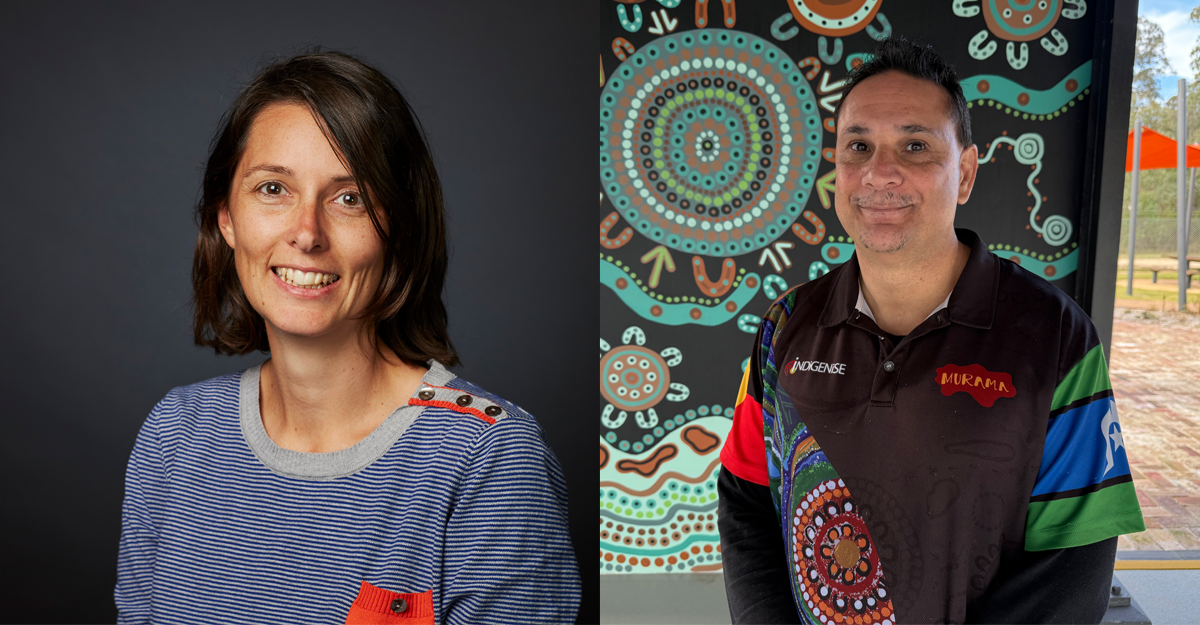
The two academics bring expertise in Indigenous education sovereignty and interventions addressing the impacts of intergenerational trauma.
UNSW has welcomed academics Dr Michelle Bishop and Dr John Hunter to our prestigious Scientia Program, which invests in learning, development and collaboration opportunities for high-performing early to mid-career researchers.
“We are so pleased to welcome such outstanding academics to our program. The work that Michelle and John are undertaking to advocate for Indigenous led strategies will deliver real-world impacts for First Nations communities,” says Professor Dane McCamey, Pro Vice-Chancellor Research.
Developing a pathway and pipeline to Grow Our Own Aboriginal and Torres Strait Islander scholars, academics and staff is a vital element of UNSW’s Indigenous Strategy.
The high calibre of Indigenous appointments, which now make up 10% of the Scientia Program cohort, highlights our commitment to further UNSW’s Indigenous Strategy. Since the program’s establishment in 2017, UNSW has appointed more than 170 researchers to the program, with 56% women.
Dr Michelle Bishop, School of Education, Arts, Design & Architecture
Dr Michelle Bishop, a Gamilaroi woman, grew up on Dharawal Country in South-West Sydney. She is a Senior Scientia Lecturer in the School of Education and has extensive experience in education, as a primary school teacher, statewide education coordinator and teacher educator.
Michelle’s research focuses on “navigating colonial systems and structures to envision and enact Indigenous education sovereignty by highlighting Indigenous theories and approaches to education as they have been practised in so-called Australia forever”.
She has also developed innovative and rigorous Country-centred and relational Indigenous research methodologies which are being used nationally and internationally. Through her research, Michelle aims to advocate, and provide an evidence base, for another way of doing education, “on our own sovereign terms as Indigenous peoples”.
Dr John Hunter, School of Population Health, Medicine & Health
A newly appointed Scientia Academic in the School of Population Health, Dr John Hunter’s work, titled ‘Murama’, focuses on the impacts of inter-generational trauma on the Aboriginal community in Greater Western Sydney, the largest inter-tribal, urban Aboriginal community in Australia.
A significant part of his research is to develop and support culturally based interventions which help address intergenerational trauma. Murama is being facilitated in partnership with a range of stakeholders, the core partners include Baabayn Aboriginal Organisation, Jarara Cultural Centre, Miriki Performing Arts, Sydney Olympic Park and Indigenise in the United States.
Murama received the 2025 First Nations Collaboration Award at the Regional Landcare and Bushcare Forum for the Murama Junior Rangers program. The award recognises Murama's outstanding work in improving land use and enhancing our environment.
- Log in to post comments
